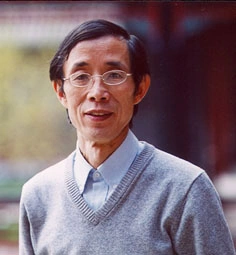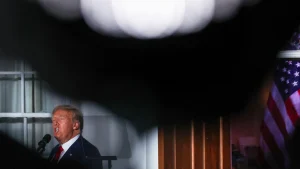Black Markets and Brothels, Official Guides of Soros’ Investments
When Jim Rogers, one of the two founders of the Quantum Fund with George Soros, was first introduced to me two decades ago, I expected him to enlighten me on the fine art of financial data analysis for uncovering wealth from obscurity. That, however, was not the case.
Instead, Rogers shared with me his global motorcycle expeditions, his daring companions, his meticulous documentation of cultures along the road, and most importantly, how he discovered brand new investment opportunities through observation of people, not numbers.
Upon close observations, Rogers was able to arrive at conclusions that many might find have found counterintuitive in the 1990s: that China holds immense potential in the long-term, and two countries were likely to disintegrate.
“Which two countries?” I asked. “The Soviet Union and India,” he said.
Rogers explained that as he rode through the two countries, he was able to witness frequent conflicts, which demonstrated a palpable absence of unity within each country, compounded by immense linguistic diversity. These factors, he believed, would greatly contribute to the division of a country. Based on his firsthand experiences, he foresaw the eventual disintegration of the Soviet Union, and warned against the potential dissolution of India in the future, an observation I concur with. Now that Russia, under the rule of Putin, no longer faces further disintegration, whether India can secure a similar opportunity remains to be seen.
A firm believer in the correlation between a country’s political stability and investment opportunities, Rogers advised that for an long-term investor, rather than short-term speculator, it is crucial to know where to look in order to gauge a country’s stability.
He had told me of two of his unique methods. First, one needs to observe the disparity between the official exchange rate of the country’s currency and that of the black market. A narrow discrepancy suggests a stable political and economic environment, whereas a significant discrepancy indicates potential disruptions.
The Second method, also a quite unconventional one, involves an examination of a country’s sex industry. Rogers argues that the proliferation of the sex industry is a common indicator of corruption, regardless of the nature of the society, socialist or capitalist. One can uncover the level of political corruption of a country by studying its sex trade, and thereby formulate predicts about the country’s future economy. Quite an orthodox index, however, my friends in law enforcement have confirmed for me how snippets of corruption can indeed be offered by wealth thrown in the brothels.
As I mentioned before, Rogers relied on hands-on approach, first-hand observations when it comes to reading markets. Dismissive of stock market analysts confined to their offices and computers, Rogers believed in a face-to-face engagement with company CEOs. In these meetings, he would patiently listen as the executives boasted about their strengths and accomplishments before he present his one and only question: “Who are your main competitors?” After the CEOs identify their competitors, Rogers would then meet with these competitors and ask them the same question, adding, “Why do you believe you can outperform your competitors?” This approach has allowed him to obtain the full competitive landscape of the industry.
As can readily been seen from Roger’s success at Austria, a country’s economy can hardly be fully understood without stepping foot on its territory. During his motorcycle tour, Rogers has noticed that despite Austria having few listed companies, its economy appears to be strong. It was then largely overlooked by international hedge funds, and thereby created an untapped financial market with considerable growth potential. Seizing the opportunity, Rogers heavily invested in Austrian stocks at low prices while touting the country’s economic prospect. Leveraging his reputation, Rogers was able to ignite fresh interest in the Austrian market, stimulating the stock prices and secured a significant profit by selling at the peak.
I also like to call to attention Rogers’ strategy of focusing not on the leaders but rather on those emerging companies with the potential to challenge and surpass them. His rationale was straightforward: companies ranked third to fifth were not yet acknowledged as market leaders and thus their stocks were undervalued. If these companies could ascend to the top, they would yield substantial returns.
My personal interest in sharing Rogers’ experiences stem from my concern over China’s underdeveloped stock market and how it frequently falls victim to international financial speculators. Market regulators and analysts who only know about candlestick patterns but not the inherent value of innovative companies poised for future growth can really benefit from Rogers’ approach .
Editor: Charriot Zhai



